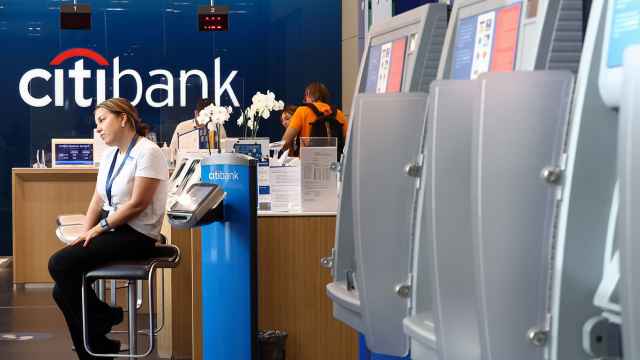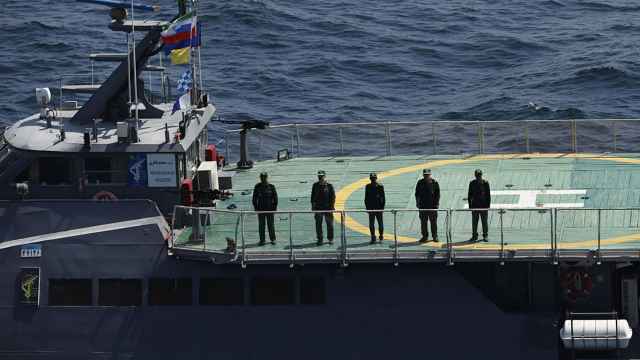BERLIN — Europe's showdown with Moscow over Ukraine is already having a major impact on German business in Russia and imposing economic sanctions would cause lasting damage to industry, a confidential paper sent to the German government by a business lobby warned.
The paper from the German-Russian chamber of foreign trade, a group representing 800 companies that provides support to German firms operating in Russia, underscores the extent of concern among German businesses over the Ukraine crisis.
It also suggests industry is stepping up efforts to dissuade Chancellor Angela Merkel's government from pressing ahead with tougher sanctions.
Merkel has warned of more punitive measures against Russia if a presidential election in Ukraine, scheduled for May 25, is disrupted.
"The growing destabilization of Ukraine and the diplomatic tug-of-war for a common solution are already having a massive impact on German business in Russia," the two-page "position paper" dated May 7 warned.
"Deeper economic sanctions would lead to a situation where contracts would increasingly be given to domestic firms, projects would be suspended or delayed by the Russian side, and Russian industry and politicians would turn to Asia, in particular China," the paper said.
It says the loss of market share for German and European firms would be "long-term and sustainable," causing "irreparable damage" to Germany's competitive position in Russia.
The paper said this would lead to job losses in Germany and would leave companies vulnerable to "massive compensation" claims if they were forced to break contracts with Russian counterparts.
The chamber represents more than 800 companies, providing support to German firms operating in Russia and Russian companies present in Germany. Rainer Seele, the chief executive of Wintershall, the oil and gas unit of German chemicals company BASF, serves as president of the group.
Germany has close economic ties to Russia, where more than 6,000 German firms are active. Germany receives about a third of its oil and gas from Russia.
Recent data showed German exports to Russia — its 11th-biggest trading partner — slumping 16 percent in the first two months of the year. That was before the EU unveiled a first round of mild sanctions in the form of visa bans and asset freezes against Russian individuals, many close to Putin.
The economic risks have not prevented Merkel from warning repeatedly that she is ready to introduce deeper-cutting trade sanctions, a stance that has opened her up to criticism from former German chancellors Gerhard Schröder and Helmut Schmidt, of the Social Democrats, who reject confrontation with Russia.
German industry, on the other hand, has gone quiet since Siemens CEO Joe Kaeser met with Putin and referred to the Ukraine crisis as "short-term turbulence" which would not get in the way of his firm's ties with Russia. Last week Kaeser said he regretted his choice of words.
A Message from The Moscow Times:
Dear readers,
We are facing unprecedented challenges. Russia's Prosecutor General's Office has designated The Moscow Times as an "undesirable" organization, criminalizing our work and putting our staff at risk of prosecution. This follows our earlier unjust labeling as a "foreign agent."
These actions are direct attempts to silence independent journalism in Russia. The authorities claim our work "discredits the decisions of the Russian leadership." We see things differently: we strive to provide accurate, unbiased reporting on Russia.
We, the journalists of The Moscow Times, refuse to be silenced. But to continue our work, we need your help.
Your support, no matter how small, makes a world of difference. If you can, please support us monthly starting from just $2. It's quick to set up, and every contribution makes a significant impact.
By supporting The Moscow Times, you're defending open, independent journalism in the face of repression. Thank you for standing with us.
Remind me later.





